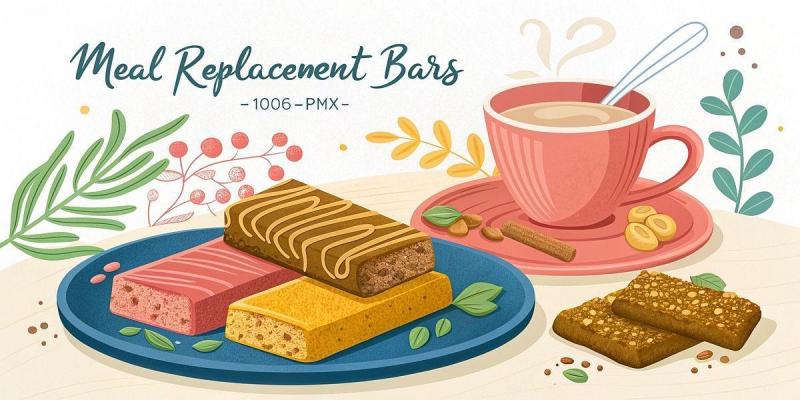When it comes to weight loss, there is no shortage of myths and misconceptions. With so much information available online and from various sources, it can be difficult to separate fact from fiction. In this article, we aim to debunk some of the most common weight loss myths and provide you with evidence-based information.
Myth 1: Skipping Meals Can Help You Lose Weight Faster
One of the most prevalent myths is that skipping meals can accelerate weight loss. However, skipping meals can actually have a negative impact on your weight loss efforts. When you skip a meal, you are more likely to become excessively hungry and overeat later in the day. Additionally, it can slow down your metabolism, making it harder for your body to burn calories effectively. Instead of skipping meals, focus on eating balanced meals throughout the day to keep your blood sugar levels stable and maintain a healthy metabolism.
Myth 2: Fat-Free or Low-Fat Foods are Always the Healthiest Option
Many people believe that opting for fat-free or low-fat foods is the best choice for weight loss. However, this is not always the case. While these foods may have reduced fat content, they often compensate by adding more sugar or artificial additives to enhance flavor. These added sugars and additives can contribute to weight gain and have other negative effects on your overall health. Instead of solely focusing on fat content, aim for a well-balanced diet consisting of whole foods such as fruits, vegetables, lean proteins, and healthy fats.
Myth 3: Crash Diets Are Effective for Long-Term Weight Loss
Crash diets, which involve drastically reducing calorie intake for a short period, are often seen as a quick fix for weight loss. However, these diets are not sustainable and can be detrimental to your health and metabolism in the long run. While you might see initial weight loss, the majority of it comes from water and muscle loss, rather than fat. Once you resume a regular eating pattern, you are likely to regain the weight you lost, and possibly more. Instead, focus on making gradual and sustainable changes to your eating habits and lifestyle.
Myth 4: Eating at Night Causes Weight Gain
Another common myth is that eating at night leads to weight gain. However, weight gain occurs when you consume more calories than your body needs, regardless of the time of day. What matters most is the total number of calories consumed versus the number of calories burned. While it's important to listen to your body's hunger cues and avoid late-night snacking out of boredom, it is not inherently harmful to eat after a certain hour. The key is to focus on portion control and make healthy food choices.
Myth 5: Supplements Can Help You Shed Pounds Effortlessly
There are countless supplements on the market claiming to expedite weight loss without any effort. However, the truth is that there is no magic pill for weight loss. While some supplements may have minor effects on metabolism or appetite suppression, they are not a substitute for a healthy diet and regular exercise. Additionally, these supplements often come with side effects and can be a waste of money. It is best to focus on sustainable lifestyle changes rather than relying on supplements.
By debunking these weight loss myths, we hope to provide you with evidence-based information that can guide you towards healthy and effective weight loss strategies. Remember, the key to successful weight loss lies in sustainable changes to your eating habits, regular physical activity, and a positive mindset.
Unveiling the Truth Behind Popular Weight Loss Myths
In the quest for weight loss, it's easy to get lost in a sea of misinformation. With so many myths and misconceptions surrounding weight loss, it's crucial to separate fact from fiction. In this article, we will debunk some of the most popular weight loss myths and shed light on the truth.
1. Myth: Skipping meals helps in losing weight faster
One of the most prevalent weight loss myths is the belief that skipping meals can boost your results. However, skipping meals can often do more harm than good. When you skip a meal, your body goes into starvation mode, slowing down your metabolism to conserve energy and making it harder to burn calories. Instead of skipping meals, focus on consuming balanced and nutritious meals throughout the day to keep your metabolism functioning optimally.
2. Myth: All calories are created equal
It's a common misconception that all calories have the same impact on our bodies. The truth is that the source of calories matters. While a calorie is a unit of energy, the type of food it comes from can have varying effects on hunger, metabolism, and overall health. Highly processed foods high in sugar and unhealthy fats may lead to weight gain and other health issues, while nutrient-dense foods like fruits, vegetables, and lean proteins can support weight loss and provide essential nutrients.
3. Myth: Carbohydrates are the enemy
Carbohydrates have received a bad reputation in recent years, with many believing that cutting them out is the key to weight loss. However, not all carbs are created equal. While refined carbohydrates found in sugary snacks and white bread can contribute to weight gain, complex carbohydrates like whole grains, legumes, and vegetables are an essential part of a balanced diet. These healthier carb sources provide sustained energy, fiber, and vital nutrients necessary for overall health.
4. Myth: Exercise is the only way to lose weight
While exercise is undoubtedly beneficial for weight loss and overall health, it's not the only factor to consider. The reality is that weight loss primarily happens in the kitchen. A balanced diet coupled with portion control and proper nutrition plays a significant role in achieving weight loss goals. It's important to remember that weight loss is about creating a calorie deficit, and exercise supports this process by burning additional calories and building muscle.
5. Myth: Supplements are the magic solution for weight loss
With a market flooded with weight loss supplements claiming miraculous results, it's crucial to approach them with skepticism. While some supplements may have a slight impact on weight loss, they should never replace a healthy diet and lifestyle. The truth is that there is no magic pill when it comes to weight loss. Sustainable and long-term weight loss requires a holistic approach that includes a balanced diet, regular exercise, and lifestyle modifications.
Busting Weight Loss Myths: What you Need to Know for Effective and Sustainable Results
When it comes to weight loss, there is a sea of information out there, and it can be difficult to separate fact from fiction. Many myths about weight loss continue to persist, causing confusion and leading people astray in their pursuit of a healthier lifestyle. In this article, we will debunk some of the most common weight loss myths and provide you with the knowledge you need to achieve effective and sustainable results.
Myth #1: Carbohydrates are the Enemy
One of the biggest misconceptions about weight loss is that cutting out carbohydrates is the key to success. While reducing refined carbs and sugary snacks is undoubtedly beneficial, it is essential to understand that not all carbohydrates are created equal. Whole grains, fruits, and vegetables are rich in fiber and essential nutrients and should be a part of a balanced diet. By focusing on portion control and opting for healthier sources of carbohydrates, you can enjoy a diverse and nutritious diet while still losing weight.
Myth #2: Fat is Always Bad
Another pervasive myth is that all fats are harmful and should be avoided. In reality, certain fats are crucial for our body's proper functioning and can even aid in weight loss. Healthy fats, such as those found in avocados, nuts, seeds, and olive oil, contribute to feelings of fullness, regulate blood sugar levels, and support brain health. Including moderate amounts of these fats in your diet can actually be beneficial for weight management, as long as they are consumed in moderation.
Myth #3: Skipping Meals Leads to Weight Loss
Skipping meals, especially breakfast, in an effort to cut calories can seem like a good strategy for weight loss. However, this approach can be counterproductive in the long run. Skipping meals often leads to intense hunger later in the day, causing overeating or making unhealthy food choices. Additionally, it can negatively impact your metabolism, making it harder for your body to burn calories efficiently. Instead of skipping meals, focus on smaller, more frequent meals containing nutrient-dense foods to keep your energy levels stable and help you achieve sustainable weight loss.
Myth #4: Crash Diets are the Quickest Way to Lose Weight
Crash diets, which promise rapid weight loss through severe caloric restriction, may seem appealing at first. However, they are not a sustainable or healthy approach to weight loss. While you may initially shed pounds, crash diets often result in the loss of muscle mass and a decrease in metabolic rate. These diets are not designed for long-term success and can lead to regaining weight once you return to a more regular eating pattern. Instead, focus on creating a calorie deficit through a balanced diet and regular exercise, as slow and steady weight loss is more likely to be maintained over time.
Myth #5: Exercise Alone is Sufficient for Weight Loss
Exercise is undoubtedly crucial for overall health, but relying on exercise alone for weight loss is a common misconception. While physical activity helps burn calories and improves cardiovascular function, diet plays a fundamental role in weight management. Weight loss occurs when you consume fewer calories than you burn, so a combination of dietary modifications and exercise is essential. Strive for a well-rounded approach that includes both a healthy diet and regular physical activity to achieve effective and sustainable weight loss.
By dispelling these weight loss myths, you can enhance your understanding and optimize your efforts towards achieving your fitness goals. Remember, a holistic approach that includes a balanced diet, regular exercise, and healthy lifestyle habits is the key to long-term weight loss success.


